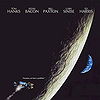Amazon.co.uk Review
A stupendous historical saga, Braveheart won five Oscars, including Best Picture and Best Director for star Mel Gibson. He plays William Wallace, a 13th-century Scottish commoner who unites the various clans against a cruel English King, Edward the Longshanks (Patrick McGoohan). The scenes of hand-to-hand combat are brutally violent, but they never glorify the bloodshed. There is such enormous scope to this story that it works on a smaller, more personal scale as well, essaying love and loss, patriotism and passion. Extremely moving, it reveals Gibson as a multitalented performer and remarkable director with an eye for detail and an understanding of human emotion. (His first directorial effort was 1993's Man Without a Face.) The film is nearly three hours long and includes several plot tangents, yet is never dull. This movie resonates long after you have seen it, both for its visual beauty and for its powerful story. --Rochelle O'Gorman
Amazon.co.uk Review
Mel Gibson's birth-of-a-nation epic Braveheart does for England what Spartacus did for Rome: every Englishman in this film is weak or nasty or a fool, or all three. Gibson plays William Wallace, the highland warrior whose fierce fighting spirit prompted Robert the Bruce's memorable victory over the English at Bannockburn. The film opens with boy Wallace losing his father and brother to the murdering English. Gibson's over-age Wallace then indulges in an unintentionally risible spot of teenage romance with the chaste Murron (Catherine McCormack), who is promptly despatched by yet another wicked Englishman. Gibson swings into action in some truly impressive (and horribly gory) fight scenes, culminating in the battles of Stirling and Falkirk. When not separating English body parts, Gibson finds time for a clandestine romance with Isabelle, the Princess of Wales (Sophie Marceau), whom he manages to impregnate, thereby ensuring that the current British monarchy are all descended from him and not from William the Conqueror as they might heretofore have supposed. He trounces the weak and venial English at every turn, causing England's nasty Edward I (Patrick McGoohan) to cough and splutter a lot. Only treachery by the Scotch nobility (lowlanders to a man) stops Wallace's triumphant crusade. His final apotheosis, complete with pre-Passion of the Christ crucifixion imagery, posits Wallace as the redeemer of his country's lost independence.
The set-piece battles are a feast for the senses: a combination of the scale of Spartacus with the mud of Branagh's Henry V. But the continual use of slow motion in tandem with the gorgeous scenic backdrops and James Horner's cloying "folksy" music score of indeterminate national origin, enhances the feeling that this is a slick promo for the Scottish tourist board (ironic, perhaps, that much of it was shot in Ireland). Gibson and his Caledonian costars give the impression that a good time was had by all. --Mark Walker
 Oscars 1996 Winners (My Version) (24 movies items)
Oscars 1996 Winners (My Version) (24 movies items) Login
Login








